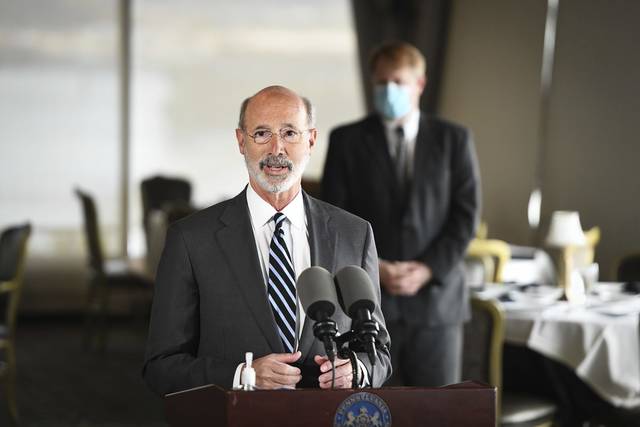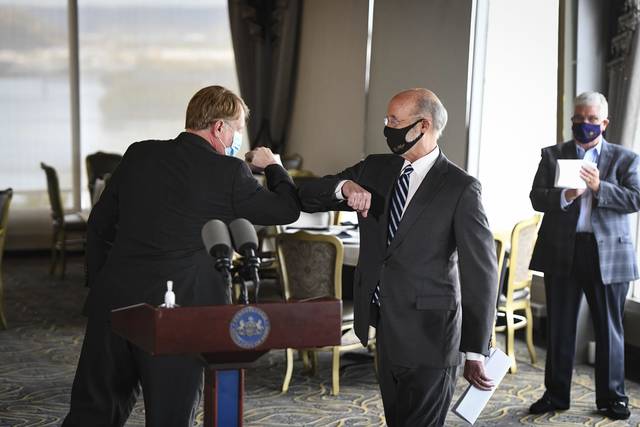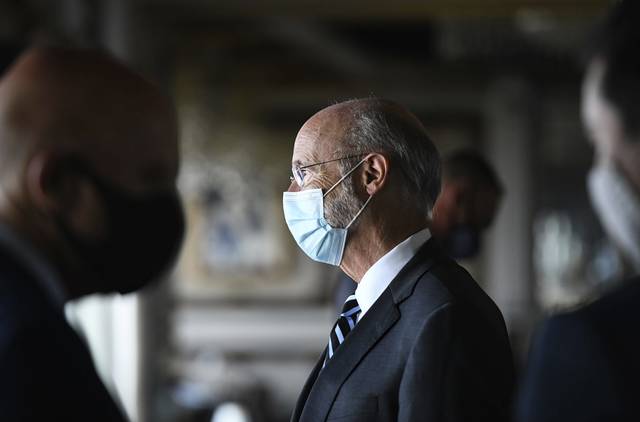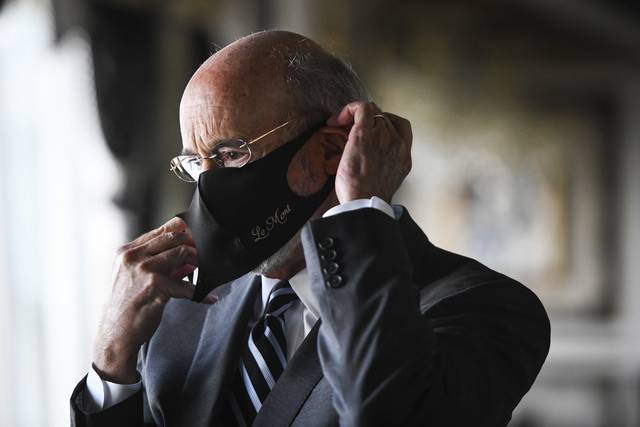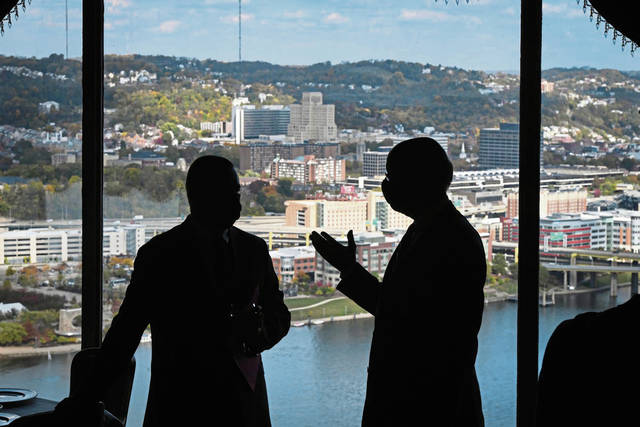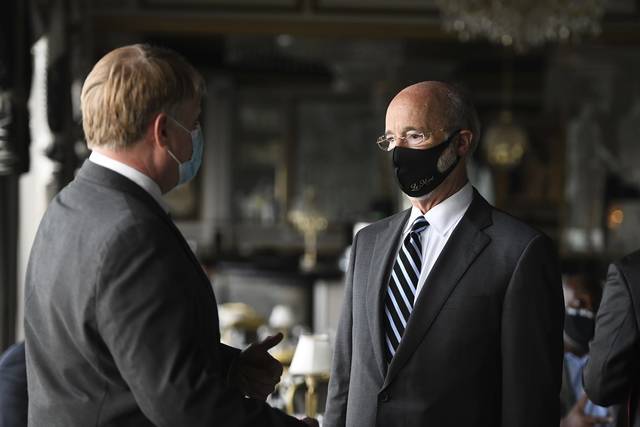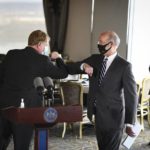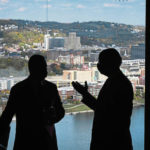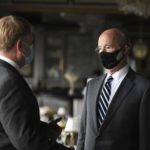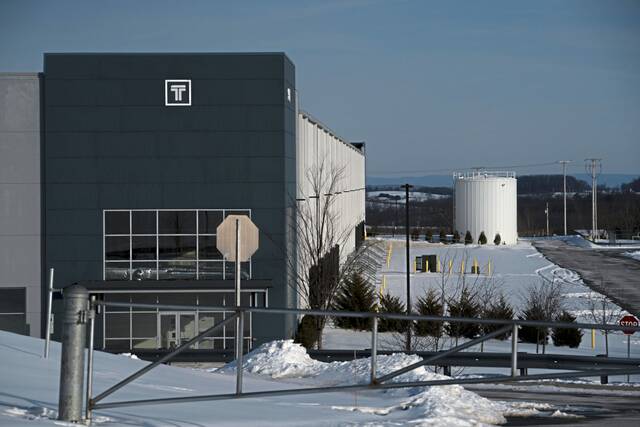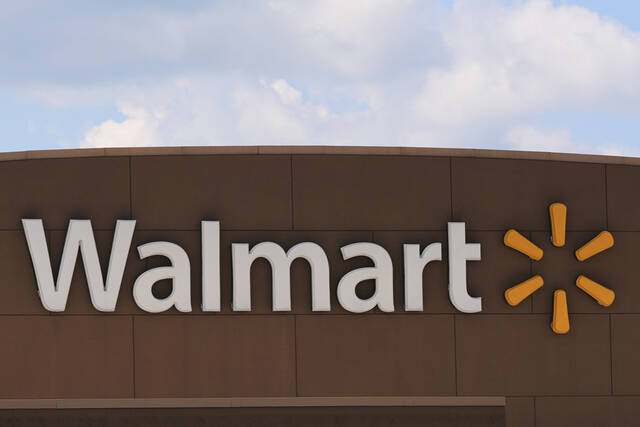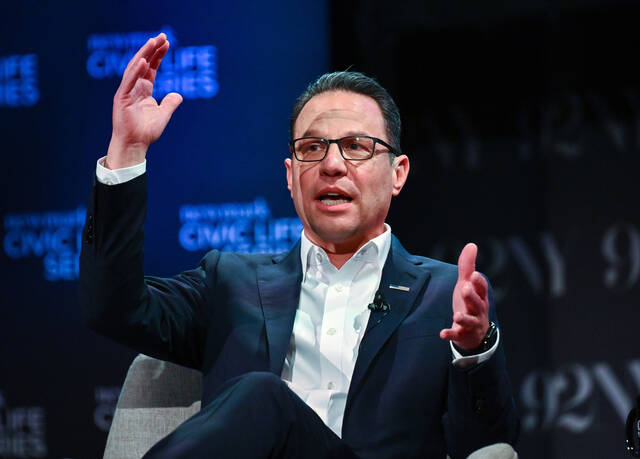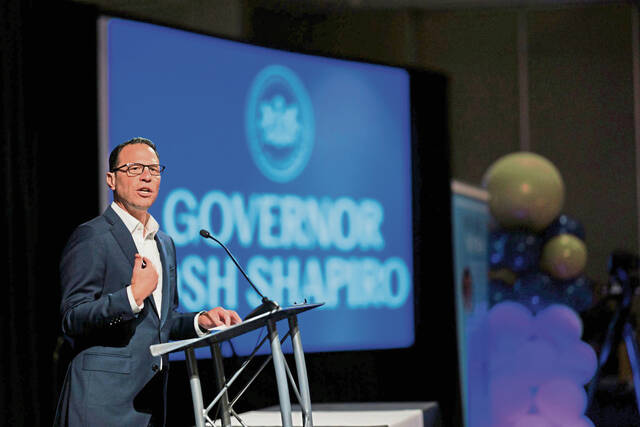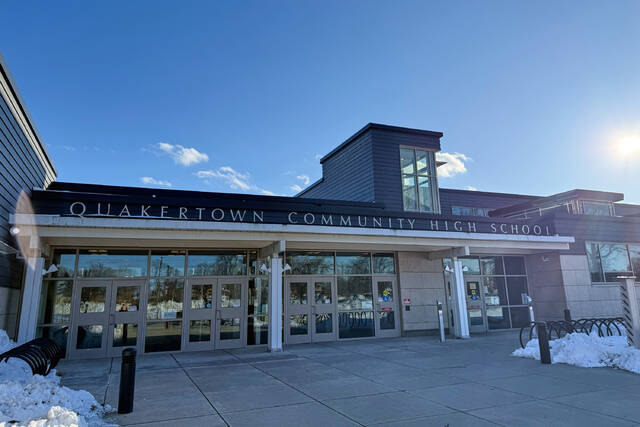Gov. Tom Wolf has asked the state Liquor Control Board to waive all licensing fees for bars, restaurants, clubs and hotels next year in an effort to bring some financial relief to an industry slammed by the covid-19 pandemic.
“This disease thrives when people get together, and it hits at the heart of what makes the bar and restaurant industry so important. It makes the act of gathering more dangerous,” Wolf said Thursday at a press conference at LeMont Restaurant on Mt. Washington.
“That’s not the fault of the restaurant owners. It’s not their fault that covid has hit their industry particularly hard,” he said. “It’s not their fault, and therefore they should not be forced to bear the financial burden of this alone.”
Wolf said he expects the PLCB will take up his request at its next board meeting.
State Sen. Wayne Fontana, D-Brookline, called small businesses such as bars and restaurants the heart and soul of the region and its communities.
“Today’s announcement is a lifeline that will save the restaurant industry real dollars,” he said. “It’s a lifeline that provides hope — real hope.”
Restaurant owners, however, said that lifeline isn’t enough.
“If that’s going to be your lifeline, then you were probably going out of business,” said Matt Turbiner, owner of Shady Grove restaurant in Pittsburgh’s Shadyside neighborhood. “It’s not enough to save the restaurant industry.”
He said any attempts to help the industry are appreciated, but this one won’t make a difference.
“The damage is done,” said Joe Kolek, owner of Anchor Inn in Harrison. “I’ve used up savings, I’ve used up things for retirement just to keep afloat. And I’m sure I’m not the only one.”
Kolek said he’s essentially lost 75% of his income over the last seven and a half months — and while every bit helps, this isn’t enough to ease the burden on the restaurant industry.
He called Wolf’s announcement “grandstanding.”
Brad Sciullo, general manager of The Rialto and Baldy’s restaurants in Greensburg, said the governor’s latest move amounts to very little.
“It’s hush money, in the sense that, if we’re bleeding cash already under the current guidelines, we may lose our liquor license anyhow,” Sciullo said. “You have to fill enough seats to make money, and if we can’t do that, we might as well give the liquor license back.”
The Rialto, which has been part of downtown Greensburg since 1933, serves as an example.
“It’s been a community staple since the 1930s, and we can’t open it,” Sciullo said.
For Sam Sieber, owner of Sam’s Tavern in the Wall in Aspinwall, the news is “great,” but still not enough.
“It’s not a great amount of money. Every little bit helps, but most of this is probably too little, too late,” he said, adding that he would have liked to see this measure in effect for 2020 as well.
The governor used Thursday’s announcement to push state legislators to put some of the remaining $1 billion in CARES Act funds toward the hospitality and entertainment industry.
“We need to get that out,” Wolf said. “That is money that we need to get out, and we need to target it to companies that have suffered the most — like restaurants. Bars and restaurants need and deserve our help.”
State Rep. Ed Gainey, D-Lincoln-Lemington, called for a bipartisan effort to get the remaining funds to those businesses that need it, particularly as the holiday season approaches.
“What hope can we give the bar and tavern community if we can do something bipartisan with the billion in CARES funds still at the state? If we can come together to give them some relief, what type of holiday spirit can we pump back into them?” he said.
Wolf reiterated four requests he made to the General Assembly in August aimed at helping the industry: cancel or reduce the alcohol tax for six months; allow restaurants and bars to purchase alcohol at or near cost for six months; add $225 million to the small business assistance program; and offer $100 million in forgivable loans and grants.
“All those things would be a help,” he said. “All those things are an effort to say, let’s recognize reality: That virus is out there, that virus is out to get us. Let’s not blame folks that do things that bring people together and make it easy for that virus to infect us. Let’s actually financially address the issues that restaurants face as a result of that reality.”
Staff writer Patrick Varine contributed.


